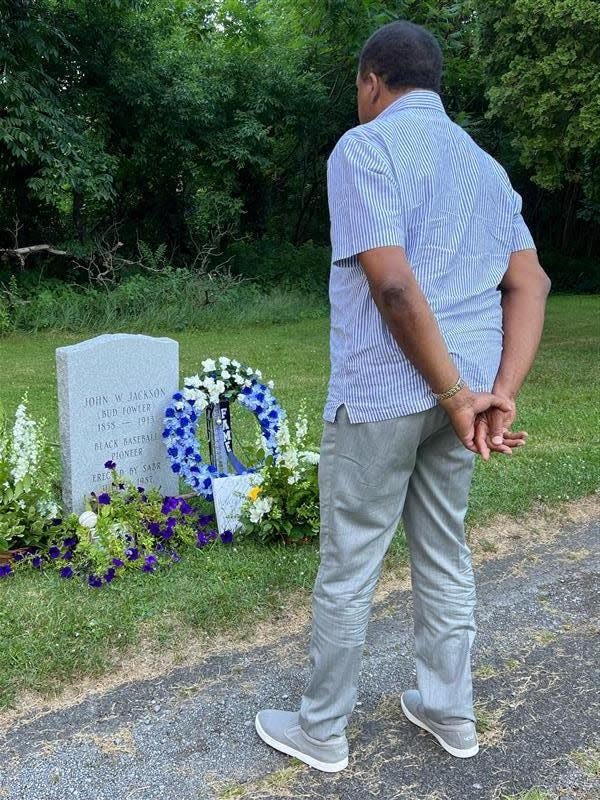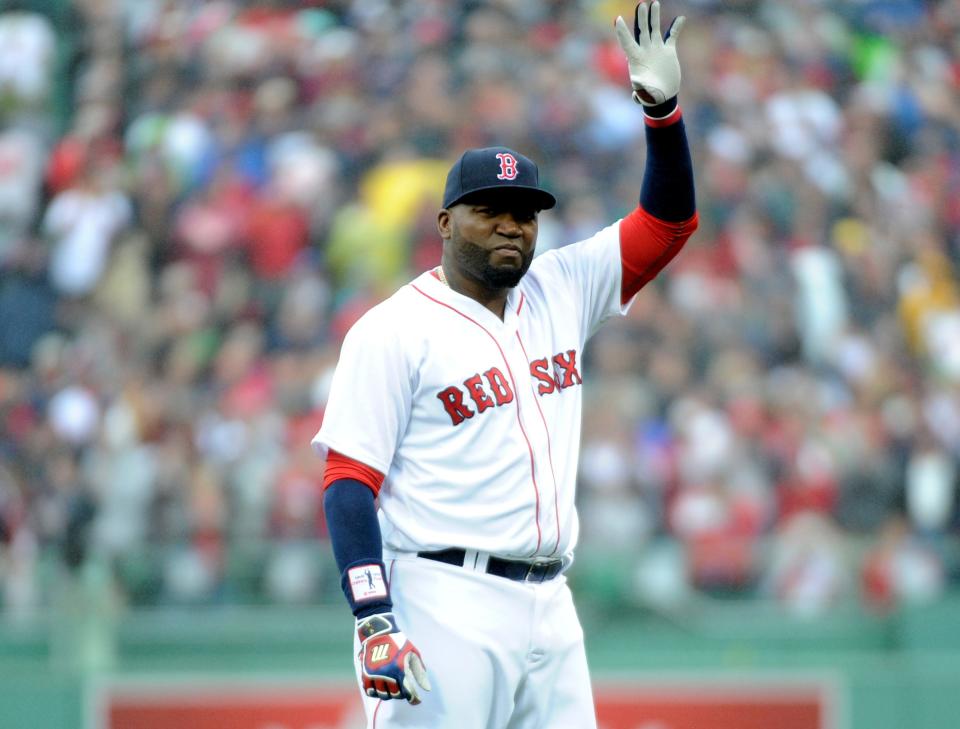This year's Hall of Fame ceremony will be a living, breathing history lesson of minorities in baseball
COOPERSTOWN, N.Y. – Dave Winfield has been attending Baseball Hall of Fame ceremonies the past 20 years since his own induction, but this one, he says, just could be the most historic weekend of ’em all.
This seven-member Class of 2022 ties together more than 150 years of baseball history, going back to the roots of the first Black ballplayers, to Cubans who fled their country for freedom, to Dominicans and white players, all wonderfully interwoven.
It starts with Bud Fowler, the first Black professional baseball player; to Buck O’Neil, the face of Negro League baseball; to Gil Hodges, the Brooklyn Dodgers teammate of Jackie Robinson who broke the color barrier in 1947 when they were together; to Minnie Minoso, the Latino version of Jackie Robinson; to Tony Oliva, who idolized Minoso and credits him for opening the door for others; to Jim Kaat, who played with Oliva on the Minnesota Twins; to David Ortiz, who was mentored by Oliva while with the Twins before becoming a hero with the Boston Red Sox.
It will be an idyllic postcard of baseball diversity since its beginnings.
“This is so cool for so many reasons,’’ Winfield told USA TODAY Sports. “Jim Kaat and Tony Oliva were on the teams I followed when I grew up in St. Paul, so I’ve known them well. I’m so happy for Buck O’Neil; I just wish it had happened when he was alive. And I’m honored to speak on behalf of the Bud Fowler family.’’
Winfield plans to stop by the gravesite of Fowler in Franklin, New York, 30 minutes outside Cooperstown, where he laid for 74 years in an unmarked grave, with a headstone that now reads in part: “Black Baseball Pioneer." He will pay his respects and Sunday let the baseball world know all about him, playing in 21 states and territories during his career, battling hatred and racism every step of the way, the Jackie Robinson who came before Robinson, when he speaks to the throng of fans.

“Bud was born in 1858, before they even allowed Black people to play anything, before Jackie Robinson was born, before the Negro Leagues,’’ Winfield said, “but there was a Black man playing baseball. It was a game he loved, a game he played, a game he coached, and a game promoted for many years.
“I’m telling you, this is going to be so special, not just for me, but all of us.’’
DODGERS-YANKEES: A super team World Series is within reach
NEVER MISS A MOMENT: Follow our sports newsletter for daily updates
The star of the ceremony will be Ortiz, the beloved Red Sox slugger who still is revered throughout New England, particularly after his infamous speech “This is our (expletive) city’’ after the 2013 Boston Marathon bombing. He helped end the Curse of the Bambino by leading the Red Sox to their first World Series title in 86 years, with the Red Sox going on to win three championships in nine years.
“He was not only a great player on the field,’’ Commissioner Rob Manfred said, “but what he did in the community, what he meant to the Boston community in times of crisis, those sorts of public things. But maybe more importantly, the little things that he did throughout his career through his foundation, he's the kind of player that makes our game what it is.’’
Ortiz also becomes the first player elected into the Hall of Fame who tested positive for steroids in his career, an anonymous test in 2004 that was leaked to The New York Times.
Ortiz’s test result could have been a false positive, and certainly there have been plenty of others tainted with performance-enhancing drug suspicions from Mike Piazza to Pudge Rodriguez to Jeff Bagwell. Whether he was clean or not throughout his career, it’s not about to sully his celebration.
“Just forget about the numbers and forget what he did in the field,’’ said future Hall of Famer Albert Pujols, who is retiring after this season from the St. Louis Cardinals. “To me, it's what he does off the field with his foundation and the impact that he has made and the life changes that he has made for others. That's what I admire the most about David Ortiz. He's humble and never forgets where he comes from. That's something really special and that's somebody that I can respect so much.
“I'm honored, humbled, as a Dominican player – and I can speak for all the Dominicans – I think we are so proud to see another Dominican player getting inducted into the Hall of Fame. I know our country is going to be partying, maybe for months, but just really excited just to see David and everything that he has accomplished in his life and his career.’’

Detroit Tigers All-Star and future Hall of Famer Miguel Cabrera, who’s from Venezuela, called Ortiz a role model for all Latino players, and talked about the impact he made on his own career.
“To me, he's like my big brother,’’ Cabrera says. “When I first came into the big league, he (treated) me like family. Him being in the Hall of Fame is everything because he brings so much to this game and outside of this game."
Manny Machado of the San Diego Padres, who ridiculed teams earlier this season for not celebrating Pujols’ legacy, says that Ortiz still remains underappreciated. He wasn’t just a slugger who led the Red Sox to World Series championships, but who was bigger than life, on and off the field.
“To me, he’s an ambassador of the game,’’ Machado says. “We look up to him. He’s the swaggiest, most humble, happiest, mad(dest); he did it all. Going into the Hall of Fame is going to be special for not only him and his family, but for all Dominicans."
The brotherhood is no different in Minnesota, who welcomed Oliva with open arms after he left Cuba. He didn’t know a word of English when he joined the Twins, but he had five other Cubans on the team with him, including All-Star Camilio Pascual and future MVP Zoilo Versalles. Oh, and a white pitcher from Michigan by the name of Jim Kaat.
“I remember when I arrived here in Minnesota,’’ Oliva said, “Jim Kaat told me that you’re going to feel at home because one-third of our team is from Cuba. He was right. It was like family’’
Oliva came to Minnesota in 1961 and never left. He was so beloved that U.S. Sen. Amy Klobuchar recently helped arrange for Oliva’s brother, Juan Carlos Oliva, to secure a visa so they can be together at the Hall of Fame induction ceremony. They last saw each other in 2009.
“I was very, very, very happy to see him come to the United Sates,’’ Oliva said. “A lot of people worked very hard f(for) him to be here. The people here are so wonderful.’’
Now, he’ll be going into the Hall with his former teammate and longtime friend in Kaat, a slugger he mentored in Ortiz, and a man he idolized in Minoso.
“I don’t think I would ever go to the Hall of Fame without Minnie Minoso,’’ Oliva said. “When I was a little kid, I listened to the Cuban winter baseball league about Minnie Minoso. He was everything in baseball.
“He was the Jackie Robinson of Latino players. He should have been in the Hall of Fame a long time ago. He could have been in two Hall of Fames – the one in the Negro Leagues and the white league. The era he played was tough. The years I played were tough. But he had such a great attitude. He deserves this so much.
“This ceremony is going to be beautiful for everyone.’’
The induction promises to be a living history lesson of men showing their courage, surviving in a country steeped in racism, refusing to back down, fighting back, and rising into baseball immortality.
Baseball’s Hall of Fame will never look so glorious.
Follow Nightengale on Twitter: @Bnightengale
This article originally appeared on USA TODAY: Baseball Hall of Fame: Class of 2022 an idyllic postcard of diversity

